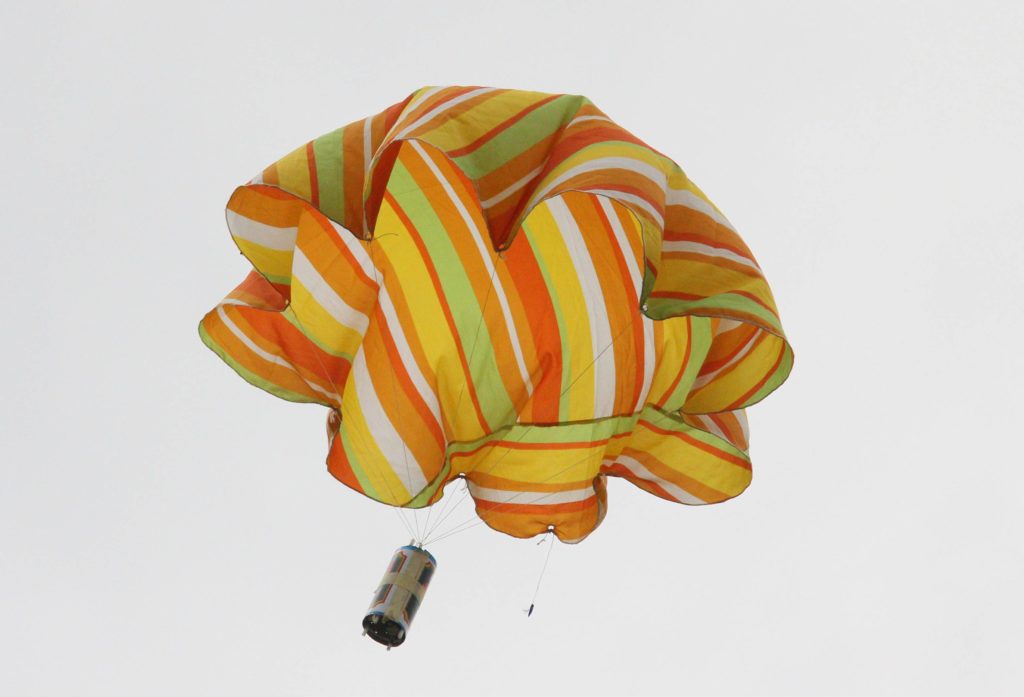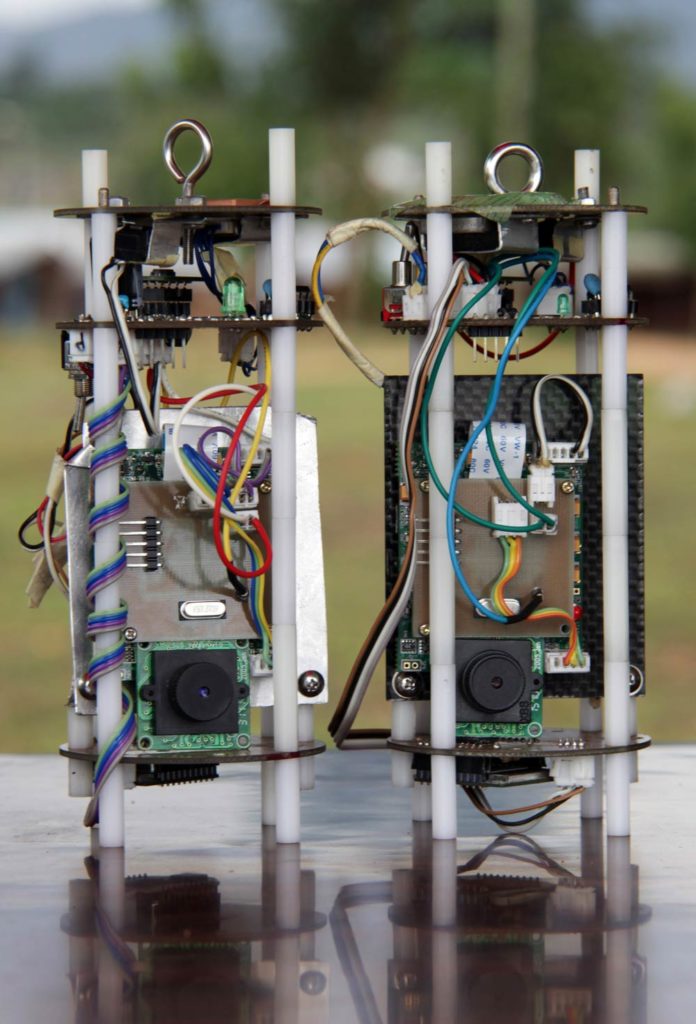Their project might not sound like much: On Wednesday college students in Ghana launched a tiny model of a satellite the size of a Coke can on a big yellow balloon.
It went up to a height of 165 metres and then came back down attached to a parachute.

Ambitious organisers in the West African country – who recently launched the Ghana Space Science and Technology Centre – see the test as a sign of bigger things to come.
“We hope that this practical demonstration of what can be done by students like them will generate more enthusiasm, fire up their imagination to come up with more creative things, and show that it’s possible that they’ll one day be able to launch their own real satellite into orbit,” said Prosper Kofi Ashilevi, director of the space centre which marked its one-year anniversary earlier this month.
The effort has drawn some skepticism, acknowledged Samuel H. Donkor, the president of All Nations University.
“They think it is a pipe dream, a waste of money,” said Donkor, who has directed $50 000 to the programme.
But Ashilevi, the space centre director, said it was essential for local universities to train students with a passion for space.
“Some wonder why we couldn’t concentrate on our problems of water, sanitation, health, all those things. I categorically disagree,” he said. “Space will help African countries who are very serious with it to leapfrog their development because it cuts across all sectors of the economy.”
Experts say Ghana is probably a good five years or more from developing its own operational satellites, which could one day be used to confront everything from natural disasters to the smuggling of natural resources.
Wednesday’s project, though, started at All Nations University with just a big balloon to carry aloft the miniature model of a satellite, known as a Deployable CanSat. The device reached a height of about 165 metres, just shy of the students’ 200-metre goal.


Owen Hawkins, business development manager for Surrey Satellite Technology in the United Kingdom, called Wednesday’s project “very, very exciting”.
“Ghana is quite a small country and they’re already punching above their weight by doing things like that,” Hawkins said.
It was the first time Ghana has sent a Deployable CanSat into the air, said Manfred Quarshie, director of the Intelligent Space Systems Laboratory at All Nations University College in Koforidua.
Six students spent three months preparing the model, outfitting it with sensors, cameras and Global Positioning System technology, Quarshie said.
It was not without its fair share of challenges. The students initially hoped to launch the CanSat with a rocket, but discovered authorities would not give them permission to import one.
“They think you are going to use it as a missile, like a terrorist,” said Benjamin Bonsu, the lab’s 29-year-old project manager.
They eventually settled on lifting the CanSat with a balloon.
As it floated back to the ground, the device recorded temperature and air pressure readings that were read aloud to the cheering crowd of about 100 students and local officials. The descent lasted less than 30 seconds.
A second device failed to deploy, but Donkor, the university president, said that hitch had not detracted from the event.
“The students are quite excited and very happy,” he said. “There is a lot of enthusiasm throughout the country that we are even daring to do something like this.” – Sapa-AP
Comments are closed.